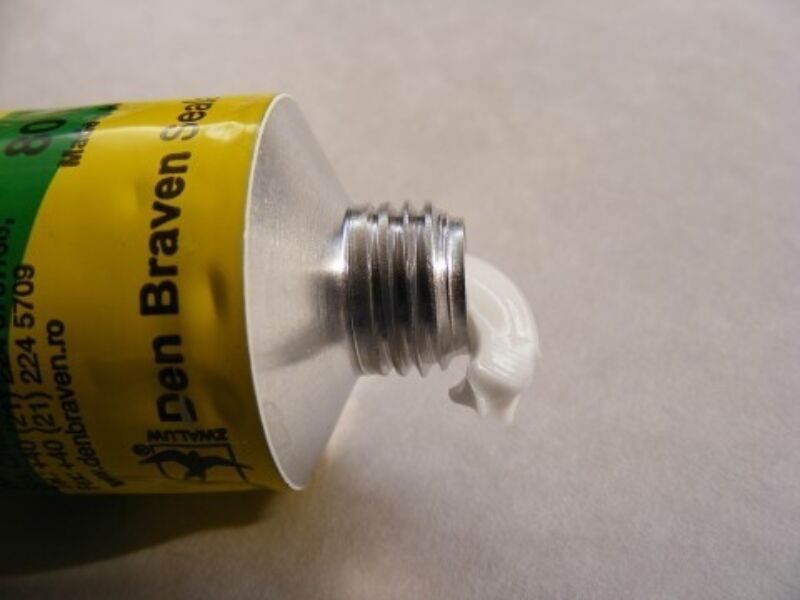Sealants are an essential part of most construction projects and home repairs. Whether the task is sealing a window frame, caulking a bathtub, installing a windshield, or repairing cracks in concrete walls, polyurethane or silicone sealants have unique advantages and disadvantages. Which type of sealant should you use? This article will consider the properties of both sealants and discuss the best application for each.

Why Sealants Are Necessary
Sealants are versatile materials, whether they are silicone or polyurethane. Both are created to close off any space between two surfaces, to prevent fluids, air, or other substances from passing through. Sealants are used in various applications, from construction and automotive, to marine, electronics, and food and beverage.
Polyurethane and Silicone Sealants
Polyurethane is an extremely resilient material that is produced by joining a diisocyanate with a polyol. It is remarkably tough, and resists moisture and hazardous chemicals. Consequently, this type of sealant is commonly used in architecture projects and the automotive industry, since its long-term reliability makes it ideal for those purposes.
In contrast, silicone sealants are crafted from a silicone polymer material that is made by combining silicon with methyl chloride or other halogenated organic compounds. They have the ability to stay elastic over an extensive temperature range and their defense against weathering, UV radiation, and chemicals, are why silicone sealants are widely used in building projects and home repair, as well as for applications needing superior flexibility in addition to a resistance to environmental conditions.
When selecting between polyurethane and silicone sealants, it is essential to consider the application and the intended performance results.
Applications for Polyurethane and Silicone Sealants
Polyurethane
Some typical applications include:
Building and Construction
Polyurethane seals are useful for exterior walls of buildings. They are watertight, to stop moisture from getting in or out. They are flexible and able to withstand any type of weather, which makes them a great choice for sealing gaps and joints.
Automotive
Polyurethane sealants can form a waterproof and airtight barrier between the body panels of the vehicle. They keep windshields from leaking and protect the undercarriage from water and salts found on the highway.
General Industrial
Polyurethane sealants are the perfect solution for sealing seams, joints, and gaps in everything from appliances to furniture and electronics. They are also used to seal around pipes, ducts, and other mechanical components.
Marine
Polyurethane sealers help seal joints, gaps, and cracks in boat hulls and decks, as well as ports, hatches, and other components.
Silicone
Silicone sealers are popular for their flexibility, and weather and chemical resistance, as well as their ability to remain stable at varying temperatures.
Some typical applications are:
Construction
Silicone sealants are a great choice for residential construction projects due to their useful properties. They can be used in temperatures between 40 ℉ and 140 ℉, and will easily attach to most porous surfaces.
Automotive
Automotive manufacturers have appreciated the remarkable capabilities of silicone for a long time. Not only can it protect glass, plastic, metal and painted surfaces from harsh weather conditions, but it can also be used in the making of engine gaskets.
Electronics
Silicone sealers are used to seal and protect sensitive components from moisture and other environmental factors. They can also be used to seal around connectors and other electronic components.
Plumbing
Plumbers use silicone sealers to form a superior connection between pipes, fixtures, faucets, sinks, and a variety of other plumbing components.
Health Care
Silicone resin-based sealants are used in the healthcare industry for assembling and sealing medical device parts.
Disadvantages of Polyurethane and Silicone Sealants
Polyurethane
Inability to Resist UV
Extended exposure to ultraviolet light can cause discoloration or brittleness, and reduce the ability of polyurethane to properly form a seal over time.
Long Curing Time
Polyurethane sealants may have a longer curing time than silicone.
Harmful Odor
Some polyurethane sealants have a strong odor that can be unpleasant and dangerous if inhaled in excessive concentrations.
Difficult to Remove
Once polyurethane sealant has cured, it can be difficult to remove. This can make repairs more difficult.
Silicone
Poor Paintability
Silicone sealants typically cannot be painted over, which can limit their use in certain applications where a painted finish is desired.
Inability to Sustain Super High Temperatures
Silicone sealants are generally heat-resistant, but they may not be suitable for very high-temperature applications (above 140 ℉).
Limited Compatibility with Other Materials
Silicone sealants may not be compatible with certain materials, such as certain plastics or rubbers, which can limit their use in some applications.
Polyurethane vs Silicone: Which Lasts Longer?
Organic polyurethane sealants typically last between 5 to 10 years, but non-organic silicone can last for a longer duration of time—upwards of 20 years! Consequently, it is often argued that the longevity of silicone far surpasses its organic counterpart.
Polyurethane sealants are the industry choice for commercial and industrial sites due to their outstanding quality, unparalleled strength, and rapid drying time.
For residential settings, silicone is the option that provides reliable protection at an affordable price.
Fastener Systems Carries the Best Sealants and Caulks
Fastener Systems Inc. (FSI) is one of the most recognized organizations in the fastener industry, and we serve customers across all 50 states. Our full-color catalog is designed to be a premier reference guide for both fasteners and accessories in construction.
FSI has built trust with our clients due to our commitment to providing quality products at reasonable prices and delivering them on time. We are more than the best resource for fasteners. We carry a line of sealants and caulks also known for their quality and performance.
Contact us today for more information!


